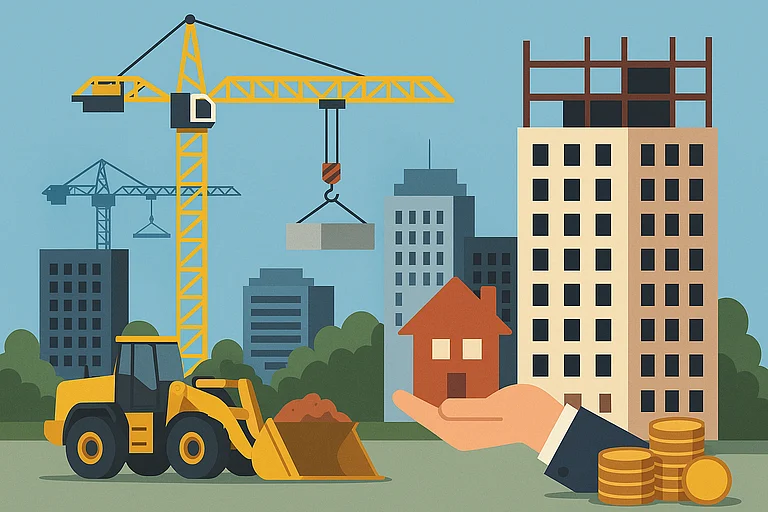Buying a home early in your career is not always a good option.
Homeownership ties you to a ton of responsibilities which youngsters might not be ready for.
"Will this house pay me… or will I be paying for it?" says Vijay Maheshwari.
Think Before You Buy: The Financial Risks of Early Homeownership
Buying a house too early might feel like success, but without financial readiness, it can quickly turn into a burden. Here's what to know before you buy
Buying your own home is often seen as a "I've made it" milestone. It is, in a way, a sign of financial stability and a dream people have in life. However, purchasing a home earlier in your life carries a variety of risks that most people are unaware of. If you don't plan your home buying smartly, you'll see how these risks outweigh the perceived benefits and perks. These long-term financial decisions should be made once you are aware of the consequences.
Risks of Buying a House Early On
No one is entirely sure of what the future holds. No growth is linear; you can't say that your present source of income will be there tomorrow. Buying a property ties a large sum of your income to mortgage, taxes, insurance, and maintenance costs. This limits your ability to save, invest, or handle unexpected expenses.
Homeownership also comes with the costs of repairs, renovations, and rising utility bills. If you buy before building an emergency fund or securing a stable income, you will be a homeowner with minimal money left for other priorities.
Another risk to consider is market volatility. You should be aware when the market is down and buy around that time. The reason is that when the market peaks, the rates for the property you are aiming for will be more than what it is actually worth. Young buyers who haven't established financial stability and security yet are more prone to this kind of loss.
Unlike renting, homeownership ties you to a ton of responsibilities that you might not be ready for.
People often overlook personal readiness when buying such assets. Buying a home should be a feeling of satisfaction, not a burden. As Vijay Maheshwari, Founder of Stocktick Capital, suggests, ask yourself this question: "Will this house pay me… or will I be paying for it?" This question not only makes you question your decision but also makes you introspect on whether you actually need to buy a house so early on in life. If you are still struggling to manage finances and build discipline with your money, maybe it is better to do that first.
Tips Before Buying A House
Make sure your emergency funds cover at least 12-18 months.
Your EMI for the said property does not exceed 25-30 per cent of your monthly income.
You have one more stream of income supporting you in case your primary one is not there for you anymore.
In summary, buying an appreciating asset does not mean you have the cash flow to pay the bills. The property will appreciate regardless, but that does not mean your income will grow with it to maintain it. Buying a house early on can strain you with EMIs and maintenance costs; meanwhile, waiting it out is going to make sure that you have the right mindset and finances for this kind of purchase.

